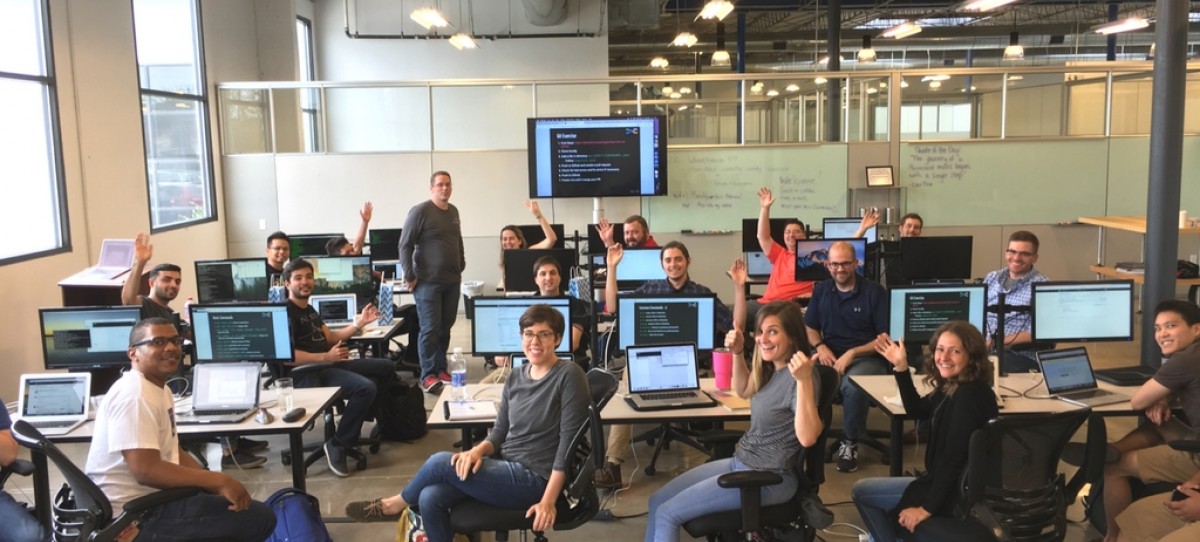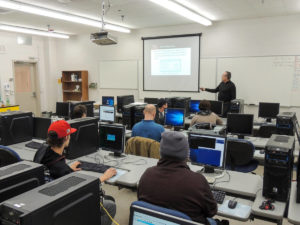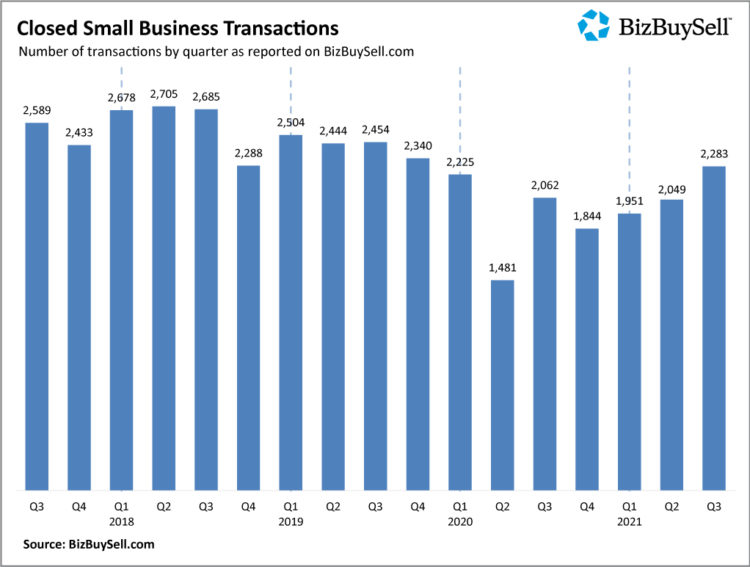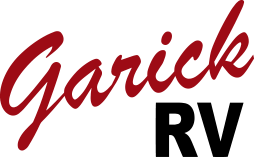
Court Reporting Acquisitions in 2023
This article provides a summary of mergers and acquisitions transactions in the court reporting sector in 2023. We try to update this post every month as we close more deals and learn of other deals that have closed in the sector.
Court Reporting Consolidation
The court reporting and litigation support sector is experiencing a long-term consolidation by several large national players and about a dozen smaller regional companies.
Here is a summary of the factors driving this long-term consolidation.
- Professional Shortage: There’s a notable shortage of skilled court reporters, partly due to an aging workforce and fewer new entrants in the field. Larger firms, through consolidation, can better manage this talent crunch by pooling resources and offering more attractive career paths.
- Technological Advancements: The court reporting industry, like many others, is rapidly evolving due to technology. Advancements in digital recording, real-time transcription, and even AI-powered transcription services are reshaping the landscape. Firms are consolidating to better invest in and leverage these technologies. It’s a bit like the tech trends we see in other sectors, where staying ahead of the curve is crucial.
- Increasing Demand for Legal Services: There’s a growing demand for legal services, partly due to increased regulatory complexities and a more litigious society. This demand extends to court reporting services, which are essential for legal proceedings. Larger firms, through consolidation, can handle a higher volume of work more efficiently.
- Economies of Scale: By consolidating, court reporting firms can achieve economies of scale. This means they can offer services at a lower cost while improving quality. It’s a classic business move – think of it like big tech firms merging to streamline their operations and cut down on expenses.
- Market Fragmentation: The court reporting industry is pretty fragmented, with many small players. This fragmentation makes it ripe for consolidation, as larger firms can acquire smaller ones to expand their market share and client base.
- Diversification of Services: The large national court reporting firms are diversifying their services to include things like legal videography, translation, litigation consulting, eDiscovery, and document management services. By consolidating, firms can offer a broader range of services to their clients, making them a one-stop shop for legal support services.
- Client Expectations: Clients are increasingly expecting more comprehensive and sophisticated services. Larger, consolidated firms are often better equipped to meet these expectations with their broader range of services and technological capabilities.
Due to these long-term factors, we anticipate this consolidation to continue for the foreseeable future.
The volume of mergers and acquisitions in the court reporting and litigation support sector has seen a marked slowdown in activity in 2023. Despite the decrease in transaction volume and a significant increase in interest rates, valuations for court reporting firms and litigation support companies have remained strong in 2023.
Transactions in the Court Reporting Sector in 2023
Below is a summary of the mergers and acquisition transactions in the court reporting and litigation support in 2023. This list is updated every month.
| Buyer | Seller | Date | Subsector |
| Magna Legal Services | Zanaras Reporting & Video | 12/7/2023 | Court Reporting |
| Cristina and Jerry Coash Jr. | Coash Court Reporting & Video | 11/30/2023 | Court Reporting |
| Veritext Legal Solutions | Metropolitan Court Reporters | 10/14/2023 | Court Reporting |
| Veritext Legal Solutions | Wasileski Court Reporting | 9/28/2023 | Court Reporting |
| Veritext Legal Solutions | Atchison & Denman | 9/14/2023 | Court Reporting |
| Veritext Legal Solutions | M&M Court Reporting | 6/25/2023 | Court Reporting |
| U.S. Legal Support Inc. | Summit Court Reporting | 6/23/2023 | Court Reporting |
| Lexitas | Imagine Reporting | 6/20/2023 | Court Reporting |
| Veritext Legal Solutions | Litigation Services | 4/28/2023 | Court Reporting |
| Veritext Legal Solutions | Augusta Scribes | 4/6/2023 | Court Reporting |
| Lexitas | Elite-Brentwood Reporting | 3/21/2023 | Court Reporting |
| Puget Sound Reporting | actively seeking acquisitions | 3/16/2023 | Court Reporting |
| Lexitas | Enright Court Reporting | 3/7/2023 | Court Reporting |
| Veritext Legal Solutions | Garcia McCall Court Reporters | 3/3/2023 | Court Reporting |
| Veritext Legal Solutions | Bridges Court Reporting | 2/1/2023 | Court Reporting |
| Lexitas | Kusar Court Reporters | 1/31/2023 | Court Reporting |
In addition to these publicly announced transactions we estimate there are an another dozen or so transactions involving smaller court reporting firms that were acquired by local competitors or individual investors. These small transactions are typically not announced in formal press releases.
Other Articles You May Find Helpful
You may also find our other articles related to court reporting helpful.
Court Reporting & Litigation Support Industry is Ripe for Consolidation
What’s My Court Reporting Firm Worth? – Simple Rules of Thumb updated for 2023
Jackim Woods’ Court Reporting Practice Group
About the Author and Jackim Woods & Co.
 Rich Jackim is an attorney, investment banker, and entrepreneur. For the last 25 years, Rich has been providing boutique investment banking services to small and middle-market companies in the court reporting and litigation support sector.
Rich Jackim is an attorney, investment banker, and entrepreneur. For the last 25 years, Rich has been providing boutique investment banking services to small and middle-market companies in the court reporting and litigation support sector.
In addition to running a successful M&A advisory firm, Rich founded a successful training and certification company called the Exit Planning Institute, which he sold to a private family office in 2012.
Rich is also the author of the critically acclaimed book, The $10 Trillion Dollar Opportunity: Designing Successful Exit Strategies for Middle Market Businesses. It became an Amazon best-seller in the business consulting category the year it was published.
Jackim Woods & Co offers skilled mergers and acquisitions advisory services to court reporting firms, digital reporting and videography firms, court reporting schools, eDiscovery companies, and legal contract staffing companies in both sell-side and buy-side transactions. Jackim Woods & Co has arranged over 100 successful transactions, ranging in value from less than one million to more than eighty million dollars.
If you own an court reporting firm or litigation support company and are interested in exploring your options, I would welcome an opportunity to speak with you. There is no cost or obligation to you and all discussions are completely confidential.
Feel free to contact me at 224-513-5142 or rjackim@jackimwoods.com.
Read More
Acquisitions in the Education and EdTech Sector in 2023
The following is a summary of mergers and acquisitions transactions in the education and edtech sectors in 2023. We try to update this post every week as we close more deals and learn of other deals that have closed in the sector.
The education and edtech sectors have seen a marked slowdown in activity so far in 2023. This is following a significant drop in valuations in 2022 as edtech companies no longer benefited from the COVID boost. That said, valuations for small, medium, and large edtech companies are back to their normal pre-COVID levels and are still significantly higher than valuations for traditional businesses, with the average small and medium-sized edtech companies being valued at approximately 3X trailing twelve-months revenue.
Acquisitions in the education and edtech sectors in 2023 so far
Below is a summary of the mergers and acquisition transactions in the education and edtech sectors so far in 2023. This list is updated every two weeks.
In December, Curriculum Associates, which sells research-based print and online instructional materials, assessments, and data management tools, acquired SoapBox Labs, an AI speech recognition company.
Carnegie, a New Heritage Capital backed company that provides innovative marketing and enrollment solutions in higher education, acquired Fire Engine Red, a student search service for college and university admissions offices.
ACI Learning acquired Infosec Learning, a company that provides colleges, universities, businesses, and governments with high-speed, intuitive virtual labs and cyber ranges for hands-on, personalized learning and skill assessment. The amount was undisclosed.
ParentSquare, which makes a tool to engage school families and communities, acquired Remind, which runs a secure communication platform for schools.
Allen Career Institute acquired Doubtnut, which makes a learning app that helps students solve math and science problems by taking photos of them, for $10 million. Doubtnut, which had raised over $52 million, was at one point valued at close to $150 million.
In November, Byju announced that it is in talks to sell Epic, its digital reading platform based in the U.S., for $400 million. The potential buyer was not disclosed.
Academic Partnerships has agreed to acquire Wiley’s online program management (OPM) division for approximately $110 million.
DaySmart, a business management company, acquired Sawyer, a business management company focused on the K-12 extracurricular activities market. The amount was not disclosed.
Flywire, a Boston-based software and payments company, acquired StudyLink, a student admissions company in Australia, for an undisclosed amount.
GMB Architecture and Engineering acquired Up and Up, a marketing firm focused on higher ed, for an undisclosed amount.
Enrollify, which offers professional development programs for higher ed marketing professionals, was acquired by Element451, a higher ed student engagement platform.
DaySmart, a business management software company, acquired Sawyer, which provides scheduling and payment solutions for K-12 extracurricular activities. The purchase price was not disclosed.
In October, Instructure, the edtech company that developed Canvas, a web-based learning management system, and MasteryConnect, an assessment management system, agreed to acquire Parchment, a digital credential company, for $835 million.
Rise In, a Web3 education platform, acquired the Web3 edtech company BlockBeam.
BibliU, a London, UK-based EdTech company, acquired Texas Book Company, a Texas-based industry leader in delivering learning materials to higher education institutions across the U.S.
Accelerate Learning, which produces STEM curriculum, acquired Kide Science, an online library of play and story-based lesson plans and professional development materials for kindergarten through 3rd grade teachers.
Discovery Education, a K-12 digital curriculum and learning services provider backed by Clearlake Capital, acquired DreamBox Learning, a provider of online software for math and reading education, for an undisclosed amount.
The Malvern School, a chain of early childhood education centers, was acquired by Busy Bees, an international early childcare provider that’s expanding in North America.
Ellucian, a leading provider of school management solutions, announced that it will acquire Tribal Group plc, a UK-based services and software provider.
In September, Meazure Learning, a test developer, acquired Examity, a leading online exam proctoring service, for an undisclosed amount.
A Chicago-based private equity firm, Golden Vision Capital Americas, acquired the educational software company Hawkes Learning for an undisclosed amount. Hawkes created the first adaptive learning educational software with embedded expert systems – the precursor to AI. Their comprehensive suite of innovative course materials encompasses a wide range of subjects, including Mathematics, English, Science, Statistics, Business, and Humanities.
Babbel, a language learning platform, acquired the browser extension Toucan to further expand its learning ecosystem with a browser extension. The amount was not disclosed.
FullBloom, a provider of special education instruction and interventions, acquired a counseling support company, EmpowerU, for an undisclosed amount.
QuantaSing, the Beijing-based learning and development provider, acquired Kelly’s Education, a Hong Kong-based online learning platform. The amount wasn’t disclosed.
In August, Presence, a K-12 teletherapy company, acquired RemoteHQ’s software platform for an undisclosed amount.
Clearlake Capital-backed Discovery Education, a K-12 digital curriculum and learning services provider, agreed to purchase Dreambox Learning, an edtech provider of online software for math and reading education.
SchoolStatus, a K-12 communications company, acquired the school engagement platform ClassTag. The amount wasn’t disclosed.
Noodle, a higher ed enrollment and infrastructure growth company, acquired Meteor, a higher ed-focused upskilling company, for an undisclosed amount.
Ascent, an outcomes-based leading and student success company, acquired the professional development platform Ampersand for an undisclosed amount.
Sallie Mae, the student lender, acquired “key assets” of Scholly, a scholarship search app, for an undisclosed amount.
Student data validation software provider Level Data acquired GlimpseK12, a curriculum measurement tool. The purchase price was not disclosed.
Kahoot, the publicly traded company that developed the popular online quiz tool was acquired by Goldman Sachs’ Private Equity for $1.2 billion in an all-cash deal.
In July, Edtech giant PowerSchool announced that it plans to acquire SchoolMessenger, which offers a range of voice, text, and online tools to help K-12 schools notify parents and students, for approximately $300 million.
Newsela, a K-12 content platform, acquired the instruction and assessment platform Formative for an undisclosed amount.
In June, Axcel Learning, an education acquisition business with financial backing from Alpine Investors, acquired ExitCertified, an online training company focused on upskilling and reskilling individuals, teams, and organizations.
In May, Learning technology company HMH acquired research and educational services organization NWEA. The combined organization will harness the collective power of instruction and research-based insights to support educators in their efforts to drive better outcomes for students.
Learneo, the company that owns CliffNotes, Course Hero, and Quillbot, acquired Barnes & Noble Digital Student Solutions for $20 million.
The learning management system, Go1 acquired the book summarizing subscription service Blinkist.
The University of Idaho announced last week that it intends to acquire the giant for-profit University of Phoenix, with 85,000 students, for $550 million.
Specialized Education Services, a K-12 services provider, acquired Illinois-based special education school NewHope Academy for an undisclosed amount.
Five Arrows, the alternative assets arm of Rothschild & Co., purchased n2y, a provider of comprehensive, technology-powered solutions for students with unique learning challenges, from The Riverside Company, a private investor.
In April, Raptor Technologies, a K-12 school safety software provider, acquired SchoolPass, a cloud-based solutions provider. The amount was not disclosed.
In March, Renaissance, a preK–12 education technology provider, acquired GL Education, a provider of formative assessments for schools.
Class Technologies Inc., a virtual software provider, acquired CoSo Cloud, a digital learning company, for an undisclosed amount.
Five Arrows, the alternative assets arm of Rothschild & Co, has acquired n2y, a provider of education technology solutions for students with learning challenges.
Docebo, a corporate training and learning platform with AI capabilities, has acquired PeerBoard, a knowledge-sharing platform.
Brightwheel, an all-in-one early education platform, has acquired Experience Early Learning, a research-based early education curriculum provider.
Excolere Equity Partners acquired a controlling interest in EPS School Specialty, a leading developer of curriculum products and services that enhance literacy and math skills for K-12th grade students, particularly those who are two-plus years behind grade level.
Parchment, based in the US, acquired the higher-ed platform Quottly for an undisclosed amount.
Voxy, based in Great Britain, acquired language-learning startup Fluentify for an undisclosed amount.
Carnegie, a leading provider of innovative marketing and enrollment solutions in higher education, has completed two acquisitions. In January of this year, Carnegie acquired the National Small College Enrollment Conference (NSCEC), the leading conference dedicated to serving the needs of small colleges. And secondly, in March, Carnegie acquired CLARUS Corporation, a leading provider of digital marketing solutions for community and technical colleges.
Teaching Channel, a provider of online teacher education, has merged with Learners Edge and Insight ADVANCE. The terms were not disclosed.
Highlights for Children, publisher of a magazine for kids and other media, acquired Tinkergarten, which provides play-based outdoor learning experiences to children six months to 8 years old.
UWorld, which provides learning tools to help students prepare for high-stakes tests, has acquired Wiley’s Efficient Learning test prep portfolio.
Vasil Jaiani, a data management company executive, has acquired two interactive educational websites, Visual Fractions and Worksheet Genius.
XL Learning, a provider of a learning resources platform for K-12 students, acquired Teachers Pay Teachers, a marketplace for teachers to sell lesson materials to each other.
Savvas Learning Company acquired Whooo’s Reading, a gamified reading platform driven by AI, for an undisclosed amount.
Atairos, an investment company, agreed to acquire LifeLabs Learning, an edtech platform that provides upskilling programs for managers.
Bain Capital Double Impact, LP acquired Meteor Education, LLC, from Saw Mill Capital Partners. Meteor is the leading provider for the design, delivery, and implementation of modern environments for K-12 schools, operating at the intersection of learning environments and learning experiences.
TPG’s Rise Fund picked up a controlling stake in the Malaysia-based Asia Pacific University of Technology and Innovation in a deal worth $300 million.
Perdoceo, which owns Colorado Technical University and American InterContinental University System, acquired the software engineering bootcamp Coding Dojo for $53 million.
Tutoring provider Paper acquired the college-readiness tool MajorClarity. The terms of the deal were not announced.
The Riverside Company, a global private investor focused on the smaller end of the middle market, has invested in Eduthings, a software solutions provider for Career and Technical Education (CTE) administrators, teachers, and students to track outcomes and monitor overall program effectiveness. Eduthings is an add-on investment to Riverside’s platform, iCEV, a leading developer of SaaS-based digital curriculum, instructional materials, and industry certifications for the CTE market.
Riverside Company acquired Human Element Solutions, LLC (Element H), a provider of live events, video, creative, and digital content solutions that optimize audience engagement within the pharmaceutical, biotech, and medical device/diagnostic industries.
U.S. News & World Report acquired CollegeAdvisor.com, a college admissions platform, from NCSA College Recruiting. The amount was not disclosed.
Study.com, an online learning platform, acquired the tutoring company Enhanced Prep for an undisclosed amount.
Accelerate Learning, a K-12 STEM curriculum provider was acquired by Providence Equity Partners. The terms were not disclosed.
Imagine Learning, one of the largest digital curriculum providers acquired Winsor Learning, whose staff will join Imagine Learning. The acquisition was announced as part of a new push into special education. The amount was not disclosed.
MSB School Services, a K-12 special education software provider, was acquired by Craftsman Capital, a private equity firm, for an undisclosed amount.
Thesis, a cloud-based administration software system for higher ed, was acquired by the private equity firm SilverTree. The amount wasn’t disclosed.
The student engagement platform Learning Explorer acquired Mosaic, the assessment system from ACT. The amount wasn’t disclosed.
ParentSquare, a K-12 engagement platform developer, acquired Gabbart Communications, a school communications tool. The amount wasn’t disclosed.
Online program management company Noodle acquired the South African-based Hubble Studios, a digital content developer, for an undisclosed amount.
Edustaff, a K-12 staffing company, announced it received a non-controlling investment from the private equity firm Public Pension Capital.
We will update this post every two weeks as we close more deals in the education and edtech sectors and learn about other transactions.
Read our previous article for information about mergers and acquisitions deals in the education and edtech sectors that closed in 2002.
About the Author and Jackim Woods & Co.
 Rich Jackim is an education industry investment banker, educational industry entrepreneur, and former mergers and acquisitions attorney.
Rich Jackim is an education industry investment banker, educational industry entrepreneur, and former mergers and acquisitions attorney.
For the last 25 years, Rich has been providing boutique investment banking services to middle-market companies in the education sector.
Rich also founded a successful training and certification company called the Exit Planning Institute, which he sold to a private equity group in 2012.
Rich is also the author of the critically acclaimed book, The $10 Trillion Dollar Opportunity: Designing Successful Exit Strategies for Middle Market Businesses.
Jackim Woods & Co offers skilled mergers and acquisitions advisory services to privately owned schools, colleges, and EdTech companies in both sell-side and buy-side transactions. Jackim Woods & Co has arranged over 100 successful transactions, ranging from less than one million to more than eighty million dollars in value.
If you own an education-related business and are interested in exploring your options, I would welcome an opportunity to speak with you. Feel free to contact me at 224-513-5142 or rjackim@jackimwoods.com.
Read More
Coding Bootcamp Acquisitions: 2014 to 2022
This article provides an overview of the publicly announced tech and coding bootcamp acquisitions since 2014.
This article includes the following sections
- Introduction
- Understanding the Bootcamp Market
- Valuing Coding & Cybersecurity Bootcamps
- 2022 Bootcamp Acquisitions
- 2021 Bootcamp Acquisitions
- 2020 Bootcamp Acquisitions
- Summary of Tech Bootcamp Acquisitions
- Notable Coding & Cybersecurity Bootcamp Acquisitions
Introduction
Since the first coding bootcamp acquisition in June 2014, we’ve seen dozens of coding bootcamps get acquired by a wide range of companies, from for-profit education companies (like Capella Education) to co-working companies (like WeWork) and other coding bootcamps (like Thinkful + Bloc)!
With rapid market growth in the bootcamp industry, other types of for-profit education companies are taking note, including traditional vocational schools and 4-year colleges and universities.
Many of these coding bootcamp acquisitions should come as no surprise. Some have been very successful, with the programs going on to significantly increase the number of physical locations and online course offerings.
In addition, as coding bootcamps mature, we are beginning to see bootcamps get acquired by well-known companies for increasingly large sums. For example, General Assembly was acquired for $413 million, and Trilogy Education for $750 million!
As education industry specialists, Jackim Woods & Co maintains a list of bootcamps acquisitions to track who’s buying whom and how bootcamps and how edtech companies are valued. As we were compiling the 2022 transactions, it occurred to us that others might be interested in this information as well, so we thought we’d share it with you. We plan to update this list each year with publicly announced deals involving coding and cybersecurity bootcamps.
 Understanding the Coding Bootcamp Market
Understanding the Coding Bootcamp Market
If you are interested in learning more about the $2.3 billion tech bootcamp sector, please see our article Understanding the Tech Bootcamp Market.
Valuing Tech & Coding Bootcamps
If you’re interested in understanding how bootcamps are valued, please see our article How to Value a Bootcamp – Example and Multiples.
You might also enjoy reading our related article, How to Value an EdTech Company – Multiples & Example.
2022 Coding Bootcamp Acquisitions
2022 was a big year for tech boot camp dealmaking.
- 2022 started off with a bang when Skillsoft, an online course provider, acquired Codecademy in January for $525M.
- Then, in February, Centage Group acquired InfoSec, the leading provider of tech-related certification prep courses, for $190 million.
- The year also ended with two notable transactions when Digital Intelligence Systems acquired Grand Circus for an undisclosed amount, and Simplilearn (a Blackstone Group-backed company) acquired Fullstack Academy. Fullstack Academy was estimated to be valued at $55 million.
2021 Coding Bootcamp Acquisitions
- ThriveDX (HackerU) acquired Cybint for a reported $50 million.
- Brainstation acquired Wyncode in January 2021
- SNHU acquired Kenzie Academy in March 2021.
2020 Coding Bootcamp Acquisitions
- K12, the publicly traded online K-12 school and education management provider, paid $165 million in cash to buy Denver-based coding bootcamp Galvanize. For K12, the deal means adding more coding curricula for students in its Destinations Career Academies, which offers high school and career training program hybrids. For Galvanize—which is also Hack Reactor—the deal provides additional funding to grow its corporate learning business, add more physical locations, and increase its services to the military.
- K-12 acquired Tech Elevator for $24M
- Carrick Partners acquired Flatiron School from WeWork for an undisclosed amount.
Summary of Coding Bootcamp Acquisitions
The following is a summary of the publicly announced acquisitions of tech-related bootcamps since 2014. Keep in mind that only large transactions are typically announced to the public. We estimate that 75% of the bootcamp transactions each year are small and are not announced to the public.
| Date | Bootcamp | Buyer | Amount |
| Nov-2022 | Fullstack Academy | Simplilearn (Blackstone-backed) | Not Disclosed |
| Nov-2022 | Grand Circus | Digital Intelligence Systems | Not Disclosed |
| Aug-2022 | ChainShot | Alchemy | Not Disclosed |
| Jul-2022 | Holberton School | African Leadership Group (ALG) | Not Disclosed |
| Jun-2022 | Emil | Le Wagon | Not Disclosed |
| May-2022 | LUCY Security | ThriveDX | Not Disclosed |
| Mar-2022 | Kontra | ThriveDX | Not Disclosed |
| Feb-2022 | Infosec | Cengage Group | $190.8M |
| Oct-2021 | Pentester Academy | INE | Not Disclosed |
| Aug-2021 | Cybint | ThriveDX (HackerU) | $50 Million |
| Aug-2021 | DigitalCrafts | American InterContinental University System | Not Disclosed |
| Mar-2021 | Kenzie Academy | Southern New Hampshire University | Not Disclosed |
| Feb-2021 | Wyncode Academy | Brainstation | Not Disclosed |
| Nov-2020 | Tech Elevator | K12 (now Stride) | $24 Million |
| Jun-2020 | Flatiron School | Carrick Partners | Not Disclosed |
| Jan-2020 | Galvanize/Hack Reactor | K12 (now Stride) | $165 Million |
| Sep-2019 | Thinkful | Chegg, Inc. | $80M-$100M |
| Aug-2019 | SecureSet Academy | Flatiron School | Not Disclosed |
| Jun-2019 | SkillsFund | Goal Structured Solutions | Not Disclosed |
| Apr-2019 | Trilogy | 2U | $750 Million |
| Mar-2019 | Fullstack Academy | Bridgepoint Education (now Zovio) | $50 Million |
| Aug-2018 | Designation | Flatiron School | Not Disclosed |
| Jul-2018 | Hack Reactor | Galvanize | Not Disclosed, but estimated at over $32 Million |
| May-2018 | MissionU | WeWork | Not Disclosed |
| Apr-2018 | General Assembly | Adecco | $413 million |
| Apr-2018 | Bloc | Thinkful | Not Disclosed |
| Dec-2017 | Viking Code School/The Odin Project | Thinkful | Not Disclosed |
| Oct-2017 | Flatiron School | WeWork | Not Disclosed |
| Aug-2016 | Bitmaker Labs | General Assembly | Not Disclosed |
| May-2016 | DevMountain | Capella Education (now SEI) | $20 Million |
| Apr-2016 | Hackbright Academy | Capella Education (now SEI) | $18 Million |
| Mar-2016 | Starter League | Fullstack Academy | Not Disclosed |
| Jan-2016 | New York Code & Design Academy | Strayer Education, Inc | ~$7 Million |
| Sep-2015 | Mobile Makers | ReactorCore/Hack Reactor | Not Disclosed |
| Jul-2015 | The Iron Yard | Apollo Education | Not Disclosed |
| Nov-2015 | Market Motive | Simplilearn (Blackstone-backed) | Not Disclosed |
| Apr-2015 | Software Guild | Learning House | Not Disclosed |
| Jan-2015 | MakerSquare | ReactorCore/Hack Reactor | Not Disclosed |
| Nov-2014 | Zipfian Academy | Galvanize | $10 Million |
| Jun-2014 | Dev Bootcamp | Kaplan Test Prep | Not Disclosed |
Notable Coding Bootcamp Acquisitions
 The first reported acquisition of a coding bootcamp was Kaplan Test Prep’s purchase of Dev Bootcamp in June 2014. Although this was the first acquisition in the coding bootcamp industry, it wasn’t Kaplan’s first foray into coding bootcamps. Kaplan launched its data science bootcamp Metis in early 2014. In 2017 Kaplan integrated Dev Bootcamp into Metis and retired the Dev Bootcamp brand.
The first reported acquisition of a coding bootcamp was Kaplan Test Prep’s purchase of Dev Bootcamp in June 2014. Although this was the first acquisition in the coding bootcamp industry, it wasn’t Kaplan’s first foray into coding bootcamps. Kaplan launched its data science bootcamp Metis in early 2014. In 2017 Kaplan integrated Dev Bootcamp into Metis and retired the Dev Bootcamp brand.
Galvanize acquired Zipfian Academy in November 2014. Zipfian Academy was one of the first coding and networking bootcamps in the US. After one year of success, it was acquired by the Denver-based education & coworking powerhouse Galvanize.
ReactorCore acquired MakerSquare in January 2015. After ReactorCore was acquired by MakerSquare, ReactorCore’s first major move was to acquire Chicago-based mobile bootcamp Mobile Makers in September 2015.
The Iron Yard acquired Apollo Education as a “strategic investor” in July 2015. As of October 13, 2017, The Iron Yard is no longer operating.
Strategic Education, Inc. (SEI), the publicly traded holding company for Strayer Education, Inc., acquired New York Code & Design Academy in January 2016. New York Code & Design Academy is no longer operated as a separate brand.
Capella Education acquired Hackbright Academy in April 2016 and shortly afterward acquired DevMountain. Capella Education was later acquired by SEI.
WeWork acquired Flatiron School in October 2017, then in May 2018, WeWork also acquired MissionU.
A few months later, Flatiron School (now a part of WeWork) acquired the UX design bootcamp, Designation, and the cybersecurity bootcamp, SecureSet Academy.
After growing too quickly and facing financial challenges, WeWork sold off most of its assets, including selling Flatiron School to Carrick Partners in June 2020.
In a classic roll-up strategy, Thinkful began acquiring several of its smaller competitors to boost its value. Starting in 2017, Thinkful acquired Viking Code School and The Odin Project. Then, in April 2018, they acquired Bloc. When Thinkful reached its desired valuation, it sold to Chegg for $100 million.
Adecco, the large tech staffing company, acquired General Assembly in April 2018 for $413 million. According to Axios, General Assembly had been valued at $440 million. Between 2011-2015, General Assembly raised approximately $120 million in VC funding and earned $100 million in revenue in 2017. That was the largest bootcamp deal at that time.
However, two years later, 2U acquired Trilogy Education in April 2019 for a record-breaking $750 million!
In early 2022, Centage Group acquired InfoSec, the leading provider of tech-related certification prep courses, for $179 million.
Toward the end of 2022, IT staffing provider Digital Intelligence Systems LLC (Disys) acquired Grand Circus, a virtual coding bootcamp provider that also connects talent to employers.
Outlook for Coding Bootcamp Acquisitions
Many industry analysts are pessimistic about the future of coding bootcamps because of the rapid advances in artificial intelligence and the ability of AI to write relatively sophisticated code. We do not share that pessimism. AI will still need talented coders to break projects down into the components that an AI can handle, then direct and instruct the AI about the project parameters, and finally review the AI’s work product and make necessary tweaks and adjustments. So rather than reducing the demand for programmers, we expect the nature of the course to change and evolve as the technology sector changes and evolves.
About the Author and Jackim Woods & Co.
 Rich Jackim is an education industry investment banker, educational industry entrepreneur, and former mergers and acquisitions attorney.
Rich Jackim is an education industry investment banker, educational industry entrepreneur, and former mergers and acquisitions attorney.
For the last 25 years, Rich has been providing boutique investment banking services to middle-market companies in the education sector.
Rich also founded a successful training and certification company called the Exit Planning Institute which he sold to a private equity group in 2012.
Rich is also the author of the critically acclaimed book, The $10 Trillion Dollar Opportunity: Designing Successful Exit Strategies for Middle Market Businesses.
Jackim Woods & Co offers skilled mergers and acquisitions advisory services to privately owned schools, colleges, and EdTech companies in both sell-side and buy-side transactions. Jackim Woods & Co has arranged over 100 successful transactions, ranging in value from less than one million to more than eighty million dollars.
If you own a tech boot camp or another education-related business and would like to explore your options, I would welcome an opportunity to speak with you. Feel free to contact me at 224-513-5142 or rjackim@jackimwoods.com.
Read More
Mergers and Acquisitions in the Education Industry in 2022
This post provides an overview of mergers and acquisitions activity in the education and edtech sectors in 2022
The education sector took some significant twists and turns when the COVID-19 pandemic changed the world. We saw a surge of new users, and new tools, around online learning; but we also saw people and organizations in 2020 and 2021 rethinking how to get the best out of learning environments overall. Now that COVID is largely behind us, 2022 is a year to take stock of how different education related companies evolved and grown.
McGraw Hill acquired Boards & Beyond, a provider of on-demand video libraries and comprehensive online resources for medical students, for an undisclosed amount.
Global University Systems acquired FutureLearn for an undisclosed amount.
GoStudent acquired Studienkreis for an undisclosed amount. This is GoStudent’s 4th acquisition.
The Riverside Company, a private equity group, acquired Applied Educational Systems (AES), a provider of digital career and technical education content for K-12 schools and career centers. AES is an add-on to Riverside’s iCEV platform, a leading developer of SaaS-based digital curriculum, instructional materials and industry certifications.
Universal Technical Institute, a provider of vocational education and skilled trades programs, acquired healthcare-related higher ed provider, Concorde Career Colleges, Inc., for $50 million. Concorde Career Colleges has 16 brick and mortar campuses and roughly 11,200 enrolled students in its allied-healthcare programs.
Solutions provider Follett School Solutions acquired the library management system Access-It Software Ltd.
Apogee, a company that offers technology services for higher ed, acquired Cumulus Technology Services, a cloud services consultancy.
The education communications and analytics provider SchoolStatus acquired Smore, a Tel Aviv-based K-12 email newsletter provider that’s widely used in the U.S.
Publisher McGraw Hill acquired the on-demand video library for medical students, Ryan Medical Education, LLC d/b/a Boards and Beyond. The amount was not disclosed.
As mentioned above, London-based FutureLearn was acquired by Global University Systems, a global for-profit higher ed provider based in the Netherlands.
California-based Mattel, one of the biggest toy sellers in the world, acquired Caribu, a digital reading app for families, for an undisclosed amount.
Higher education solutions provider Top Hat acquired STEM learning platform Aktiv Learning.
University Headquarters acquired Discover Early Childhood EDU, an informational guide about degree offerings.
BiC, one of the world’s biggest pen sellers, acquired Advanced Magnetic Interaction, a company that’s focused on “augmented” human-computer interaction.
Learnsoft, a learning management system provider, raised $16.7 million in Series A funding led by Elsewhere Partners.
Discovery Education, a digital edtech platform provider, acquired Pivot Interactive, which has a library of interactive educational science videos. Discovery has private equity backing from Clearlake Capital, and it also acquired DoodleLearning earlier in the month.
EarlyDay, an early childcare education career marketplace, raised $3.25 million.
The children’s publisher Scholastic acquired Learning Ovations, which runs a literary assessment and instructional system.
Edlio, a K-12 communications technology company, acquired SchoolInfo, a mobile app creator for schools.
LumiQ, a Canada-based company that runs a podcast for training chartered professional accountants, raised $5 million for expansion in the U.S.
Roper Technologies, Inc., announced it has reached an agreement to acquire the school administration software provider Frontline Education in a transaction valued at $3.725 billion.
Akili Interactive, which is developing a video game treatment for pediatric ADHD, raised $163 million in a merger with the special purpose acquisition company (SPAC) Social Capital Suvretta Holdings Corp.
Upkid, an on-demand marketplace for childcare centers and teachers, raised $1.7 million in a pre-seed round.
Outcome Group, Inc., an education financing company, announced it has received new debt facility from Variant Investments, LLC, to expand its education portfolio.
Alchemy, a Web3 developer, acquired ChainShot, a coding bootcamp company, for an undisclosed amount.
Renaissance Learning, an educational software services company, acquired Illuminate Education for an undisclosed amount, according to an email sent to Illuminate customers.
Discovery Education, a digital learning platform, acquired the UK-based math and language arts product provider DoodleLearning for an undisclosed amount.
Vsauce’s Curiosity Box subscription service was acquired by science subscription provider MEL Science. It reportedly closed for $12 million.
The future-of-learning private equity firm Achieve Partners acquired Helios Consulting, a certified Workday advisory partner, to build out its apprenticeship programs.
Cybrary, a cybersecurity and IT career development company, raised $25 million in Series B funding.
Territorium, a skill acquisition edtech company, closed $4.4 million in seed funding.
Creative Galileo, an early learning platform, raised $7.5 million in Series A funding.
Pearl, leading research backed, all-in-one tutor management platform, announced its seed fundraising has passed $4 million.
Arist, a microlearning platform, raised $12 million in Series A funding.
APDS, a public-benefit corporation whose advanced career readiness platform offers career training to incarcerated people, raised $7 million in Series C funding.
Class Technologies announced it has closed its acquisition of Blackboard Collaborate.
Kangarootime, an early childhood education software management company based in Buffalo, NY, closed $26 million in Series B funding.
Coding Dojo, a coding boot camp company, raised $10 million. The Bellevue, Washington-based organization trains software engineers both in-person and online and has experienced more than 100% year-over-year growth over the last two years.
upGrad, a Mumbai-based “unicorn” and test-prep company, doubled its valuation after a $225 million funding round. It’s now valued around $2.25 billion. The nonprofit Educational Testing Service was involved in the funding round.
Elevate K-12, the leading provider of high-quality live-streaming instruction for US K-12 classrooms, raised a Series C $40M round of funding led by venture capital firm General Catalyst.
Velocity Career Labs, a startup that wants to create a blockchain-based platform to manage employee’s credentials, raised $6.5 million in funding.
Multiverse, an apprenticeship facilitator, founded in London and now co-headquartered also in New York — has closed a Series D of $220 million, with its post-money valuation coming in at $1.7 billion. StepStone Group (not to be confused with recruiting platform StepStone) and previous backers Lightspeed Venture Partners and General Catalyst all co-led this round, with Founders Circle Capital and past backers Audacious Ventures, BOND, D1 Capital Partners, GV and Index Ventures also participating.
Cambly, a language learning app, raised $60 million in Series B funding, which is encouraging because language learning apps are a rarity in the VC-backed consumer tech space because they have struggled to make money.
Prenda, a K-8 micro-school company, announced a $20 million Series B funding round. The Series B is being led by Seven Seven Six (776), Alexis Ohanian’s firm, with strong participation from edtech-focused VC Learn Capital, Modern Venture Partners, Peak State Ventures, and the companies original angel investors also participating.
Achieve Partners acquired a majority stake in Boclips, a company that curates educational videos. Boclips works with publishers and education providers worldwide to enrich learning with the world’s best educational videos and podcasts. Boclips is the trusted destination for rich media that are vetted for quality, sourced from leading creators, and curated specifically for education. Achieve Partners is engineering the future of learning and earning by investing in cutting edge technologies and novel business models to bolster skill development and secure the future of work for millions of Americans.
IXL Learning, a learning platform company, acquired Curiosity Media, which develops language learning services.
BibliU, a learning platform, announced it has raised $15 million in funding. All existing institutional Series A investors – Stonehage Fleming, Oxford Science Enterprises, Guinness Ventures, and Nesta Impact Investments – participated in the round.
Beable Education, an online literacy recovery platform, acquired Readorium, a leading provider of educational software that teaches reading comprehension skills through science text differentiated to students’ reading levels.
Go1, a hub of on-demand corporate training resources, announced that it raised more than $100 million in a new round of funding, bringing its total market valuation to over $2 billion. The funding was co-led by AirTree Ventures and Five Sigma, with SoftBank Vision Fund 2, Salesforce Ventures, Blue Cloud Ventures, Larsen Ventures, Scott Shleifer and John Curtius from Tiger Global, TEN13, M12 (Microsoft’s venture fund), Madrona Venture Group, SEEK and Y Combinator also participating.
Riverside Insights, a leading developer of research-based assessments and analytics, today announced its acquisition of Aperture Education, the leading provider of research-based social and emotional learning (SEL) assessments for K-12 schools. With more than 65 years of combined research and SEL experience, Aperture sets the standard for research-based SEL assessment solutions.
Elsevier, a global leader in research publishing and information analytics and part of RELX, has closed the acquisition of Interfolio, a provider of advanced faculty information solutions for higher education, headquartered in Washington DC, US. For over 20 years, Interfolio has supported academics, researchers, higher education institutions and funders. Interfolio’s portfolio includes Faculty Information System (FIS), Dossier, and Researchfish.
India-based startup PW, or PhysicsWallah, has raised $100 million in its Series A funding, the profitable startup said Tuesday. Westbridge and GSV Ventures financed the startup’s first institutional round, which values the two-year-old firm at $1.1 billion (post-money). The company offers low-cost education classes. According to the company’s CEO, “The firm has been profitable since inception with positive cash flow and reserves.”
Guild Education, which provides and manages education-as-a-benefit programs for employers, raised $175 million in a Series F funding round. The round was led by Wellington Management, with participation from Oprah Winfrey, Bon Secours Mercy Health, Citi Impact Fund, and existing investors. The latest funding brings the Denver-based company’s total valuation to $4.4 billion.
About the Author and Jackim Woods & Co.
 Rich Jackim is an education industry investment banker, educational industry entrepreneur, and former mergers and acquisitions attorney.
Rich Jackim is an education industry investment banker, educational industry entrepreneur, and former mergers and acquisitions attorney.
For the last 25 years, Rich has been providing boutique investment banking services to middle-market companies in the education sector.
Rich also founded a successful training and certification company called the Exit Planning Institute which he sold to a private equity group in 2012.
Rich is also the author of the critically acclaimed book, The $10 Trillion Dollar Opportunity: Designing Successful Exit Strategies for Middle Market Businesses.
Jackim Woods & Co offers skilled mergers and acquisitions advisory services to privately owned schools, colleges, and EdTech companies in both sell-side and buy-side transactions. Jackim Woods & Co has arranged over 100 successful transactions, ranging from less than one million to more than eighty million dollars in value.
If you own an education-related business and are interested in exploring your options, I would welcome an opportunity to speak with you. Feel free to contact me at 224-513-5142 or rjackim@jackimwoods.com.
Read More
Valuations for Title IV Schools and Training Companies at Record Highs
Valuations for vocational schools and training companies are at record highs now. As business performance rebounds, buyers are competing for strong performing businesses. That has led to an increase in the number of education-related businesses that were sold in Q3 of 2021. The number of education deals that closed in the third quarter increased 17% over the previous quarter, and 11% from the same quarter in 2020, according to Jackim Woods & Co, which tracks and analyzes vocational school and training company sale transactions.
2021 Education Industry Seller Confidence Index
Valuations for vocational schools and training companies are at record highs now because seller confidence is up. As the economy rebounds, owners of vocational schools and training companies are returning to the market, feeling more confident they can sell their schools and training companies for a good price and less willing to wait until the COVID pandemic is over. Seller confidence increased to 57 out of 70; that’s up from 45 in 2020. This is the highest seller confidence level since the high of 58 in 2018. Today 49% of the respondents believe they can receive a higher sale price for their school or training company today compared to a year ago, and 46% of respondents said the top factor motivating their confidence was an improvement in enrollment and revenue.
The average revenue for vocational schools and training businesses that were sold in the third quarter was $755,000, up 6% from the same time last year. Meanwhile, buyers of education-related businesses, especially Title IV schools, are paying record-high prices for businesses that performed well during the pandemic. The average sale price in the third quarter hit a new high of $1,780,000; that’s 17% higher than the previous year and 40% above pre-pandemic levels.
With current valuations above where they were pre-pandemic, many school owners are thinking now may be the right time to exit.
2021 Education Industry Buyer Confidence Index
Valuations for vocational schools and training companies are also at record highs because buyer confidence is up. Buyers noted that there is a limited supply of profitable well-run schools and training businesses on the market. In addition, several buyers noted that because of the shift to online learning, schools will be able to expand their geographic reach while reducing the cost of delivering educational services. The combination of these two factors signals significant growth opportunities and higher margins for well-run schools and training companies in the future. As a result, buyer confidence increased to 60, up significantly from 48 in 2020 and only slightly above the buyer confidence level of 59 in 2018.
 It is interesting to note that demand for high-performing vocational schools and training businesses is increasing. According to Rich Jackim, Managing Partner of Jackim Woods & Co., “buyer inquiries on our education-related listings are up 39% since the same time last year. However, many business owners are putting off selling until their schools or training companies have fully recovered, so the supply of profitable, well-run schools is still limited. This is driving up values and makes it a sellers’ market.”
It is interesting to note that demand for high-performing vocational schools and training businesses is increasing. According to Rich Jackim, Managing Partner of Jackim Woods & Co., “buyer inquiries on our education-related listings are up 39% since the same time last year. However, many business owners are putting off selling until their schools or training companies have fully recovered, so the supply of profitable, well-run schools is still limited. This is driving up values and makes it a sellers’ market.”
If you are beginning to think about selling your training business or Title IV vocational school and would like to explore your options, please contact Rich Jackim at rjackim@jackimwoods.com for a FREE, confidential, no-obligation consultation.
Read More
Business Valuations at Record Highs in Q3 2021
As business performance rebounds, buyers are competing for strong performing businesses. That has led to an increase in the number of businesses that were acquired in Q3 of 2021. The number of closed transactions in the third quarter increased 17% over the previous quarter, and 11% from the same quarter in 2020, according to BizBuySell’s Insight Report, which tracks and analyzes U.S. business sale transactions. The report also includes an analysis of survey responses from over 2,000 business owners, business buyers, and business brokers.
2021 Seller Confidence Index
As the economy rebounds, sellers are returning to the market, feeling more confident they can sell their businesses for a good price and less willing to wait until the COVID pandemic is over. Seller confidence increased to 57 out of 70, up from 45 in 2020. This is the highest seller confidence level since the high of 58 in 2018. 49% of the respondents believe they can receive a higher sale price today compared to a year ago, and 46% of respondents said the top factor motivating their confidence was improved sales or revenue.
The average revenue for businesses sold in the third quarter was $671,000, up 6% from the same time last year. Meanwhile, buyers are paying record-high prices for businesses that have continued to perform well during the pandemic. The average sale price in the third quarter hit a new high of $350,000; that’s 17% above the previous year and 40% above pre-pandemic levels.
With current business valuations higher than they were pre-pandemic, many business owners are thinking now may be the right time to exit.
2021 Buyer Confidence Index
Buyers noted that there is a limited supply of profitable well-run businesses on the market and they regret missing out on buying last year while prices were lower. As a result, buyer confidence fell to 48 out of 70, down significantly from 60 in 2020 and slightly above the buyer confidence level of 47 in 2018.
 It is interesting to note that demand for high-performing businesses is increasing. According to Rich Jackim, Managing Partner of Jackim Woods & Co., “buyer inquiries on our listings are up 33% since the same time last year. However, many business owners are putting off selling until their businesses fully recover, so the supply of profitable, well-run businesses is still limited. This is driving up values and makes it a sellers’ market.”
It is interesting to note that demand for high-performing businesses is increasing. According to Rich Jackim, Managing Partner of Jackim Woods & Co., “buyer inquiries on our listings are up 33% since the same time last year. However, many business owners are putting off selling until their businesses fully recover, so the supply of profitable, well-run businesses is still limited. This is driving up values and makes it a sellers’ market.”
If you are beginning to think about selling your business and would like to explore your options, please contact Rich Jackim at rjackim@jackimwoods.com for a FREE, confidential, no-obligation consultation.
Read More
Sellers Command Record Prices, Seller Confidence Grows as Buyers Compete for Deals
The number of businesses that were acquired continued to rebound with the number of closed transactions in the third quarter up 17% over the previous quarter and up over 11% year-over-year. That’s according to BizBuySell’s Q3 Insight Report, which tracks and analyzes U.S. business-for-sale transactions.
Sellers are returning to the market, feeling more confident they can receive a good price and less willing to wait as the effects of the COVID pandemic linger on, including supply chain disruptions and staffing shortages.
Seller confidence index increased to 57 in 2021, up from 45 in 2020, which is the highest mark since the high of 58 in 2018. Of those surveyed, 49% of business owners felt they could receive a higher sale price today compared to a year ago, and 46% said the top factor that influenced their decision to sell was improved sales and revenue.
“The number of active sellers in the market is still lower than in previous years, but we have definitely seen an uptick in new clients since 2020. The shortage of good companies for sale, combined with low interest rates and a stock market at all-time highs has driven up the value of the companies that are currently for sale,” said Richard Jackim, Managing Partner of Jackim Woods & Co.


Number of Acquisitions in Education Sector Soars in 2021
The total value of mergers and acquisitions in the education sector increased by more than 50% from the second half of 2020 to the second half of 2021, as companies across the industry rushed to add education-related companies to their portfolios, according to a report by mergers and acquisitions advisory firm, Jackim Woods & Co.
Jackim Woods & Co. is a mergers and acquisitions firm that provides advice and financial consulting to middle-market companies in the education sector.
The overall number of individual M&A transactions also rebounded to pre-pandemic levels.
Buyers of education companies closed 210 mergers in the first half of 2020, and 240 acquisitions during the first six months of 2021.
The total value of acquisitions in the education sector between January and June was $19.4 billion, largely driven by Platinum Equity’s $6.4-billion acquisition of McGraw Hill, the report noted.
The market value of deals closed during the first half of 2021 had almost as much market value as all the deals closed during all of 2020.
Private equity-sponsored transactions accounted for 40% of deals during the first six months of 2021. That’s 8% higher than the average number of private equity-backed deals for the last three years.
According to Jackim Woods & Co, 97 of the 240 deals during this time frame were sponsored or financed by financial investors like private equity, venture capital, or other investment firms. That’s the highest number in three years and a 130% increase over the first half of 2020.
Twelve deals during the first half of 2020 had purchase prices of more than $100 million, and at least seven of those involved the K-12 sector. About 33% of the deals had purchase prices of between $4.5 million and $54.6 million.
The K-12 EdTeh segment surpassed the professional training services sector as the education industry’s most active market segment in the first half of 2021.
Approximately 50 deals involved the acquisition of professional training companies in the second half of 2019 and about 45 deals covered professional training services in the first half of 2021. There were approximately 40 deals in the K-12 EdTech segment in the second half of 2020, while nearly 60 deals closed in that segment in the first half of 2021.
For other segments of the education sector, the analysis showed a mixed picture of market activity for the first six months of this year compared to the second half of 2020.
The number of deals in the childcare services and higher-education EdTech segments increased during this period, but the number of deals in professional training technology, higher-ed institutions (including Title IV vocational schools), and K-20 services decreased. Deals involving for-profit K-12 schools remained stable.
According to Rich Jackim, Managing Partner of Jackim Woods & Co, “we are seeing strong demand for Title IV vocational schools that prepare students for careers in the healthcare professions. We’re also seeing strong demand for non-Title IV schools, like commercial driving schools and cybersecurity and programming schools. Valuations for these schools have increased significantly over the last 24 months.”
In addition to the McGraw Hill acquisition, the most interesting education sector deals in the first half of 2021 included
- Byju’s $900 million acquisition of Indian tutoring company Aakash Educational Services
- Renaissance’s $650 million acquisition of Nearpod
- Kahoot’s $435 million acquisition of K-12 secure-sign-on provider Clever
 If you own an education-related business, including a Title IV college or vocational school, a k-12 proprietary school, or an EdTech company and are beginning to think about selling, we would be delighted to speak with you and help you explore your options.
If you own an education-related business, including a Title IV college or vocational school, a k-12 proprietary school, or an EdTech company and are beginning to think about selling, we would be delighted to speak with you and help you explore your options.
Contact Rich Jackim, Managing Partner of Jackim Woods & Co at 224-513-5142 or rjackim@jackimwoods.com.
Read More
Alpin Haus acquires Garick RV


Alpin Haus, an outdoor recreation powerhouse in New York, announced the acquisition of Garick RV in Oak Ridge, NJ.
Alpin Haus, started as a small family-owned business in 1964, is one of the leading outdoor recreational retailers in the northeast and employs over 200 people across five locations. They feature a full line of RVs, snowmobiles, skis, boats, pools, and spas.
With the acquisition of Garick RV, Alpin Haus now has six locations and its first location outside the state of New York.
Garick RV’s founder, Gary Threlfall said, “I’m excited to find a buyer like Alpin Haus that shares the same core values which I founded Garick RV on over 35 year ago. I’m confident Garick’s customers and employees are in good hands with Alpin Haus.”
Founded in the spring of 1983 by two high school friends as a RV rental company, Garick RV bloomed into a dealership with a sales center and a 10-bay service center employing over 20 people.
“Garick RV has an outstanding reputation, and this acquisition provides an additional platform to offer Alpin Haus’ services and products,” said Andy Heck, President of Alpin Haus.
“Our companies’ core foundations of providing outstanding customer service align exceptionally well,” Heck said. “We are excited to grow beyond our state borders and we look forward to serving this expanded market for years to come.”
Jim Bates, Partner, at Jackim Woods & Co. (www.jackimwoods.com) a middle market mergers & acquisitions firm with years of experience working with a variety of recreational vehicle companies represented Garick RV in the sale and played a key role in managing the transaction.
Read More
The M&A Market Is Back. Buyers Are Targeting These Industries.
M&A deal activity has recovered from its 9-month pandemic-related dip. Based on the overall strength of the stock market, we expect continued strong mergers and acquisitions activity for 2021 as well.
The total dollar value of mergers and acquisitions announced in the U.S. fell to roughly $20 billion in March as the pandemic set in, according to data from Barrons. That was a sharp drop-off—from about $180 billion in January. Yet the recovery has been equally sharp. Deal volumes reached approximately $205 billion in October according to Barron’s data.
Looking forward, Rich Jackim, managing partner at Jackim Woods & Company said, “low-interest rates, optimism about a COVID vaccine, record-breaking fundraising by Special Purpose Acquisition Companies (SPACs), and even a less contentious global trade policy will all contribute to continued strong M&A activity in 2021.”
Interest rates are currently at historic lows, reducing the cost of funding acquisitions. In addition, the good news about several COVID vaccines provides a light at the end of the tunnel and the assurance that buyers need to make a purchase.
And SPACS—special purpose acquisition corporations that raise money through an initial public offering in order to buy other companies—have raised more than $64 billion this year. SPACs raised just $13 billion in all of 2019, suggesting that SPACs will be the new driver of middle-market M&A activity in 2021.
“The M&A wave is regaining momentum and should continue for the next 12-18 months,” Jackim says. He believes the following industries will see an uptick in M&A activity in 2021.
2021 will be a year of recovery as retail and restaurant workers displaced by COVID-related closures seek other careers and gainful employment. As a result, Jackim believes the vocational/technical training and education sector will of interest to buyers and investors. The US has been suffering from a shortage of skilled workers for over a decade, so there are plenty of high paying jobs available for people with the right skills. Enrollment in vocational programs tends to rise as unemployment rises, so we expect 2021 to build on the strong results that the technical education industry saw in 2020, and to attract renewed interest from both financial and strategic buyers and investors.
The energy industry is another industry where we expect to see a lot of M&A activity in 2021. The price of crude oil has dropped to just above $40 a barrel since early summer, nowhere near the $63 a barrel price at the beginning of the year. At the same time, the rise of clean energy and potential regulation are threatening companies that focus on traditional fossil fuels. As the fossil fuel industry shifts toward a lower-growth model, exploration and production companies will be looking to generate returns through acquisitions that would yield economies of scale and other benefits, or diversify their product or service offerings away from fossil fuels.
